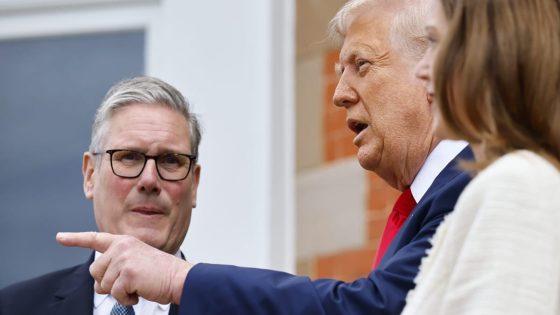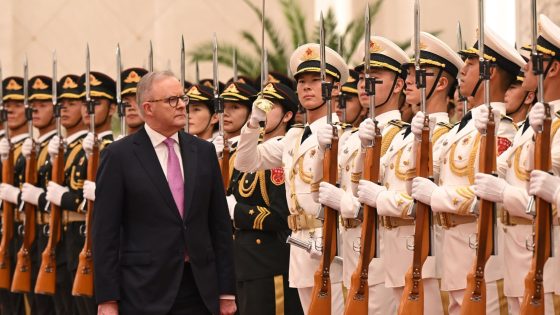In a recent joint press conference in Scotland, former President Trump hinted at a swift enforcement of a new trade deal with the U.K., stating it would happen “pretty soon.” This comes after the U.S. raised tariffs on metal imports, a move that has significant implications for global trade dynamics.
- Trump anticipates deal enforcement "pretty soon."
- U.S. focuses on domestic steel and aluminum.
- Starmer confirms tariff cut in the deal.
- U.K. exports 200,000 tonnes of steel annually.
- U.S. tariffs seen as harmful to U.K. industry.
- Trump considers 10% tariff on U.K. goods.
Trump emphasized the importance of steel and aluminum, noting, “We’re going to make our own steel; we’re going to make our own aluminum.” British Prime Minister Keir Starmer confirmed that the tariff cuts were already included in their agreement, highlighting the complexities of international negotiations. As of June 2025-07-28 19:33:00, the U.K. maintains a lower tariff rate, but the situation remains precarious for British steel exports.
How will these tariff changes affect international markets? The ongoing negotiations underscore the fragility of trade relationships and the potential for economic shifts. Key points to consider include:
- U.K. steel exports to the U.S. are valued at over £400 million.
- Trump is contemplating a blanket 10% tariff on U.K. goods.
- U.K. Steel calls the U.S. tariffs a “devastating blow.”
As negotiations unfold, stakeholders must stay informed and agile. The outcome could reshape international trade dynamics for years to come.
































